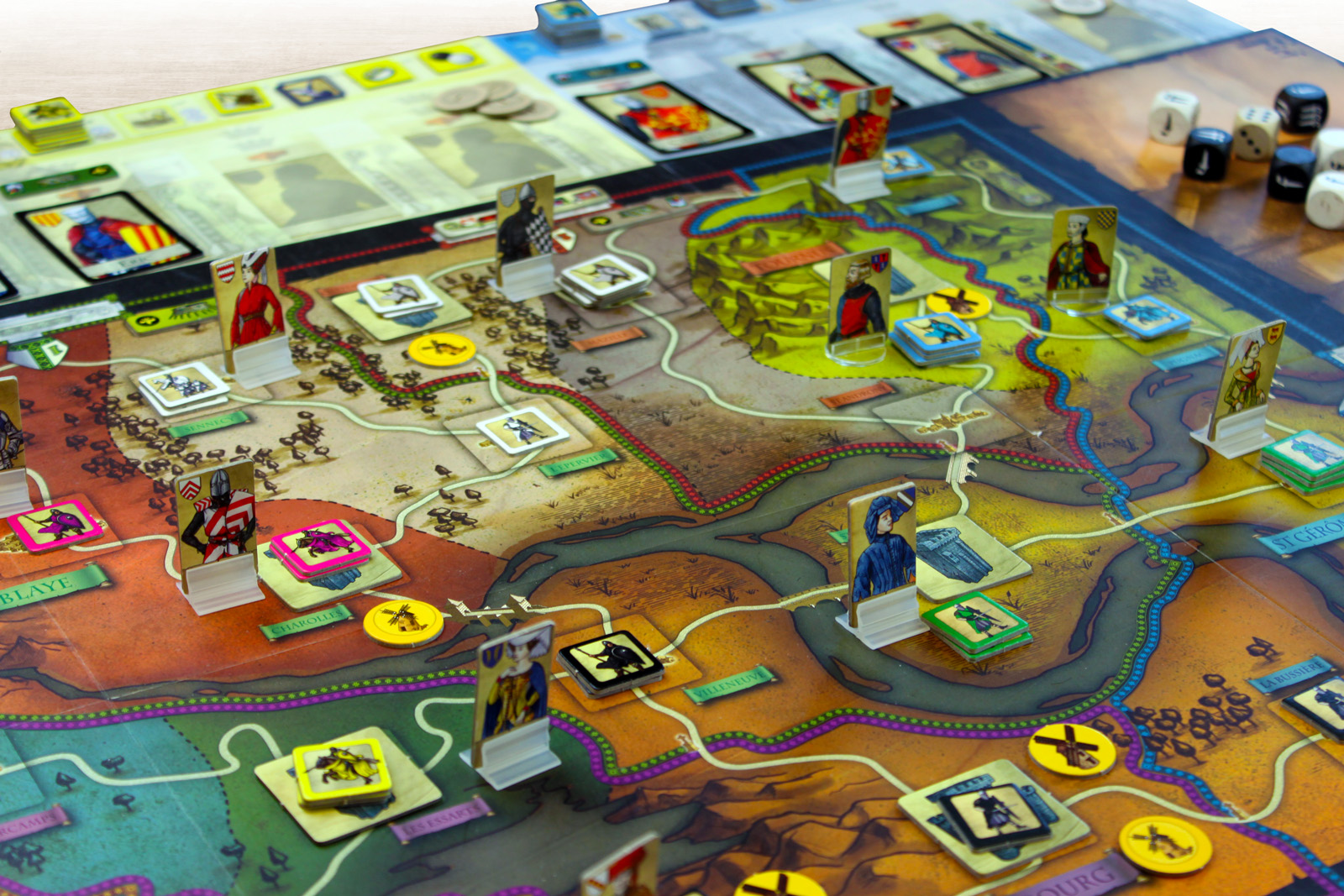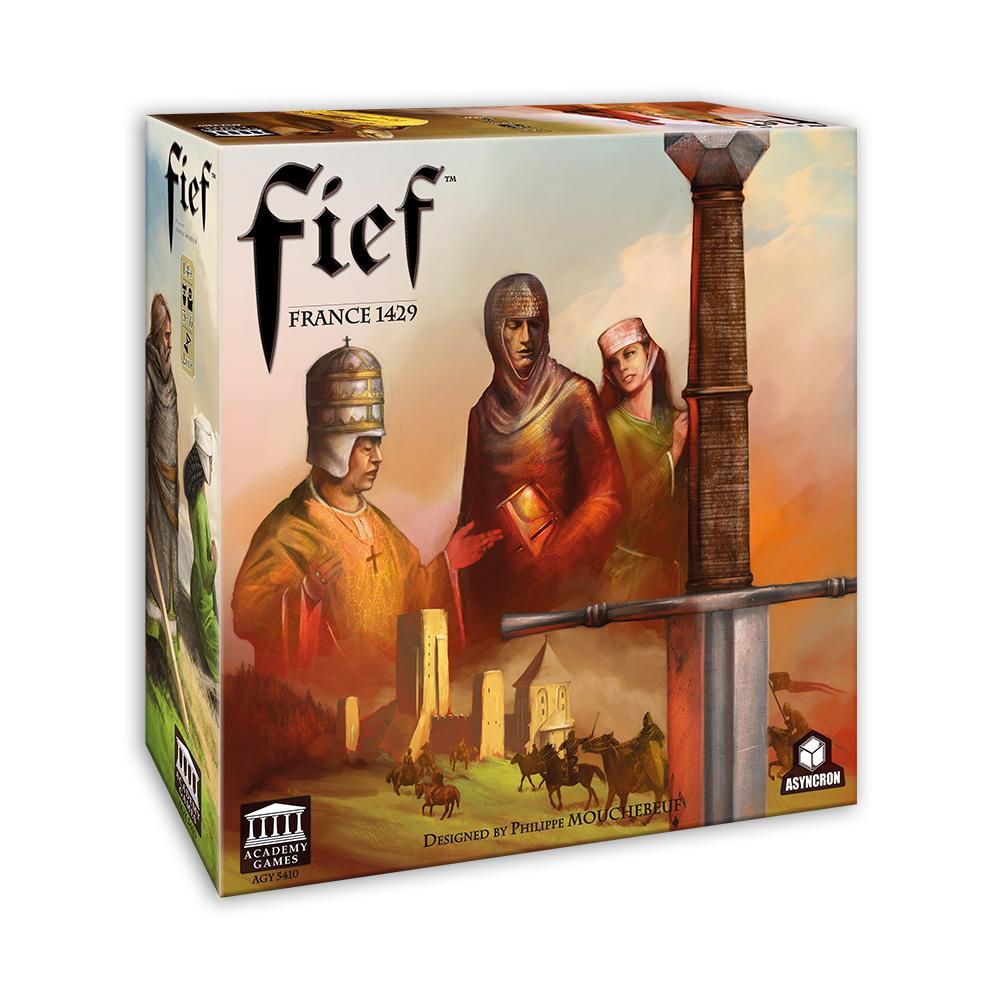If you like Crusader Kings 2 then you’ll love Fief: France 1429
For those who can’t get enough of dynastic politics and burning peasants’ livelihoods.

The greatest hybrid of strategy and roleplaying games ever developed for me, Crusader Kings 2 is a juggernaut of PC gaming. It allows players to step into the shoes of a broad range of medieval characters across several continents while wooing, marrying, assassinating, and warring their way to kingships, empires, and—inevitably—grave misfortunes. After years of iterative development, its panoply of expansions and content packs make it a treasure trove of medievalist miseries.
Though people enjoy CK2 for many different reasons, there are common threads of enjoyment found across its broad spectrum of players. People like to shepherd their family of nobles, grow attached to the best of them, and tell the tales of how they met their end. People like to develop their little corner of Europe, build up an army, and ensure the prosperity of their realm. And people love to hate the other families of nobility that surround them—whether it's the kings of the rival kingdom or the other baron just across the river. It's the random surprises, the unforeseen events, and the secret plotting that make CK2 such a thrill ride of a game. An inconvenient death to plague can set your plans back generations—but that’s part of the fun.
There’s a board game that scratches all the same itches. It was made in the late '80s as Fief, and restored by Academy Games and Asyncron as Fief: France 1429. It's a wargame with strategic economic elements and extensive diplomatic negotiation, but what makes it special is its deep reliance on individual characters to accomplish anything in the game.
Fief plants players into some of the great, last gasps of internecine strife in the burgeoning state of France. As the Hundred Years' War forges the very concept of nationhood in western Europe, you take on the role of a family line of French nobles trying to consolidate power and dominate their country. Conquer baronies and ducal titles for your family, build support in the church by appointing your relatives to bishoprics, and perhaps even claim titles like King or Pope!
Fief is a highly diplomatic game where players are in near-constant communication with those neighboring them. The movement of armies is crucial, with troops mustered on the borders a constant threat to peace and economic security. You’re either reassuring or threatening in turns, telling others you’re securing your interests by amassing forces at one moment and threatening to invade the other.
Targets of opportunity constantly present themselves, forcing mercenary allegiance over strict friendships—sure, you’ve been peaceful with your neighbor the whole game, but why not take advantage of a far-off war to burn down some mills and cripple their economy? Like in Crusader Kings, true alliances can only be bought via marriages yoking two dynasties together, but also increasing their requirements for victory. Plus, a bad plague, death in combat, or assassination can mean the end of an alliance with a heartbeat if one spouse dies.
Which can, and will, happen. Armies can only move if nobles lead them, which means that you'll have to risk those carefully accumulated titles and offices in defense of your realm or in pursuit of a larger one. Lords can die in combat or be captured, forcing you to re-evaluate carefully chosen plans. The game is mostly driven by a deck of event cards, surprising you with events like heavy weather forcing armies to a standstill, good harvests increasing tax incomes, or the aforementioned outbreaks of plague. It's the kind of random chance that makes Crusader Kings 2 so enjoyable, and it's just as good in Fief.
The biggest gaming news, reviews and hardware deals
Keep up to date with the most important stories and the best deals, as picked by the PC Gamer team.

Fief isn't perfect. It's very much a 1980s wargame, imperfectly balanced and reliant on simulationist rules rooted in historical fact. A diplomacy-heavy game means you really balance it yourself. You have to know that if one player gets a series of good tax seasons then other players will have to gang up on the now-wealthy juggernaut. It’s also strongest with a larger player group—the game's minimum is three players, but it really shines with five or six.
Much like CK2, I'm also going to recommend some of Fief: France 1429's expansions. Politics adds a layer of personality to your characters, giving them positive and negative traits, as well as hangers-on and courtiers. Tactics adds several more kinds of troops that increase the game's strategic depth to levels more on par with other tabletop wargames, like Archers, Bombards, and hireable Mercenaries.
Jon Bolding is a games writer and critic with an extensive background in strategy games. When he's not on his PC, he can be found playing every tabletop game under the sun.

